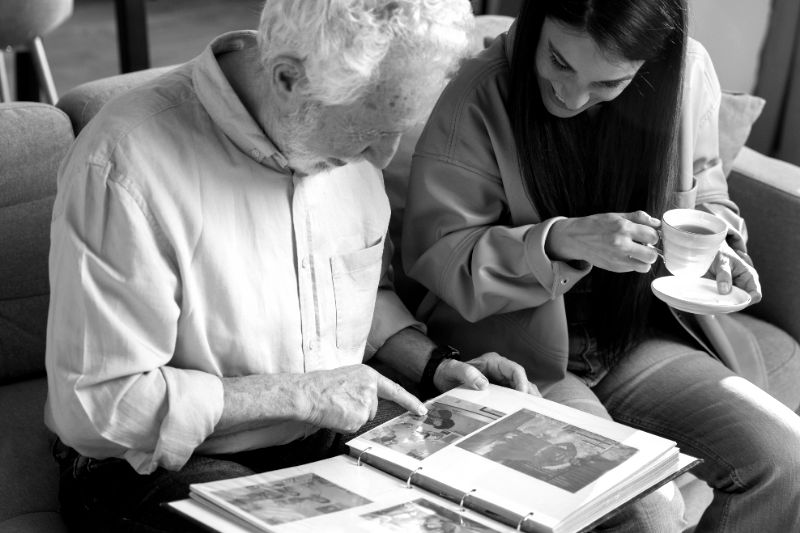What is reality? People often describe different realities of the same reality. So which one is real? Which one is not? Do you really know your life, or do you know only what you want to know?
Given the name, false memories seem like a phenomenon to run from. Life can already be difficult enough. Adding the formation of fantasies is just a recipe for disaster. However, coping with reality is not easy for many, especially when reality is miserable.
Your mind tries to protect you in any way it can. One of these protections comes in the form of false memories, through which you can take your sweet time to process reality. You may find this concept dubious — but the truth is that you’ve used false memories several times. You are probably still doing it.
If you are intrigued by this curious phenomenon, you should understand the basics of false memories. Read further to learn more.
Explaining false memories
The human mind is often thought of as the most intelligent in existence. That’s why most people assume that it performs all its functions perfectly. But that is simply not true. The human mind is affected by way too many things to be perfect, including itself. One of the affected areas is memory.
False memories have existed forever, so there is a lot of history and studies you can learn and understand. Get to know some prominent theories that will help you understand false memories better.
Fuzzy-trace theory
A theory about false memories (with a fun name) is the Fuzzy-trace Theory. According to this, memory is not a single process but rather the independent recording and retention of fragmented verbatim (specific information) and gist (general meaning) representations.
False memories develop when bits of verbatim memories disintegrate and are connected to the wrong contexts or when gist memories are rediscovered in situations requiring verbatim recall.
For example, suppose an elderly person is asked to remember the color of their classroom walls. The actual color is off-white with beige borders. In that case, they might only recall seeing the beige color, which naturally blends with the off-white, and declare that the color of their classroom walls was beige.
Here, they were only able to recall a gist of the specific (verbatim) information they were looking for, but this small change immediately led to the formation of a false memory. This theory emphasizes the importance of distinguishing between verbatim and gist recollections and their impact on forming false memories.
Constructivism theory
One of the most interesting theories about false memory is Constructivism. This posits that memory is a complicated process combining real-world experiences with beliefs and interpretations rather than just being a basic record of previous occurrences.
It can, therefore, be difficult to distinguish between genuine recollections and false memories consistent with a person’s perception of events.
Because they are founded on the person’s own ideas and views, false memories seem subjectively real to the individual. It can be challenging to distinguish between real and false memories when the boundaries are blurred between what is remembered based on interpretation and what actually happened.
Source monitoring theory
Compared to constructivism, Source Monitoring theory offers an alternative viewpoint on memory processes.
This theory challenges the idea that actual memory is automatically combined with reasoning and other sources of knowledge. It highlights that some situations, including task demands and strategies, can cause memories to be confused or misattributed, which can lead to false memories.
According to these explanations, life events can also affect memory permanence. This can affect actual memories, and already existing false memories can become even more distorted over time. This truly makes one think about the power of the mind.
Mind power is also discussed in these theories, explaining how malleable memory is. It is easily affected by social influences, cognitive processes, and highly subjective perceptions of reality. Because of this amazing malleability, the mind can adapt to influences and internally change parts of itself, resulting in several new existences — one of which is false memories.
Impacts of false memories
Any change is bound to have different effects on people. Life is complicated, and good and bad effects exist simultaneously like yin and yang. Thus, the formation of false memories also has such effects.
Positive effects
False memories, while typically seen negatively, can have a good consequence.
They can help you become more skilled at solving problems by prepping your mind with answers, provide you with a survival advantage by supporting you in solving problems with insights, facilitate the speedy recall of crucial information, enhance your recall of health-related information, and strengthen your memory in general.
These positive effects highlight the adaptive nature of memory processes, which suggests that false memories can serve useful functions in some situations.
Read more: The Surprising Benefits of Delusional Optimism Towards Resilience
Negative effects
False memories can also have harmful consequences, particularly when accurate recall is critical.
They can spread disinformation, have major legal repercussions such as false testimonies and unjust convictions, cause confusion and grief, create misunderstandings in relationships, and reduce the reliability of an individual’s version of events.
These negative outcomes highlight the necessity of knowing the complexities of memory processes and the potential effects of false memories in various contexts.
Understanding and managing false memories
Learning about false memories might make it seem natural and common. You might think that since it’s natural, you don’t have to worry about it much. But you do. False memories affect some of the most crucial aspects of your life, which you most definitely need to care about:
- Impacts your perspectives. They can affect your view of your personal history and identity, potentially leading to incorrect beliefs and behaviors.
- Affects decision-making. These memories can result in poor decisions, which can stifle personal development.
- Affects your relationships. More importantly, these can impact your relationships and interactions with people, perhaps leading to misunderstandings or disputes due to faulty recollections.
False memories cannot be eliminated. But they can be prevented, and their effects can be controlled to some extent. How? There are a few possible ways to do so:
Use imagery
For some people, visual representations lead to more accurate memory retention. Try to represent information visually or connect visuals to information.
Search the memory
Sometimes, actively searching for accurate information can lead to corrections in false memories. Try thinking hard about different events surrounding a particular memory and the memory itself to recall the correct version.
Corroborate memories
People often share memories, so if you doubt a particular memory of yours that you know you have shared with others, ask these people to share their version as accurately as possible with you. Then, connect the dots and do your best to remember the correct version yourself.
Use introspection
Practicing introspection can help foster greater awareness of your thought processes and memory biases, which can help prevent or control the negative effects of false memories. Practice mindfulness and record your introspective thoughts during the process in a journal to keep a record of your faulty recalling tendencies.
Read more: Mindful Musings: Harnessing the Healing Energy of Journaling
Get professional help
Harmless false memories can sometimes lead to serious conditions like Falsely Based Memory Obsession (FBMO), where people experience intrusive thoughts or obsessions about taking some wrong actions in the past without any solid memory or evidence of it. At this point, it is best to seek professional help like therapy or psychiatric help, as this condition can obstruct daily life.
In conclusion
False memories are interesting because of their complicated nature; they can act as both a puzzle and a revelation.
They challenge your understanding of reality, showing memory as not just a static storehouse of facts but a dynamic creation influenced by experience. Yet, false memories wield a double-edged sword. They sharpen problem-solving skills but also sow confusion and discord. As you navigate this cognitive landscape, understanding and managing false memories becomes paramount.
If you are passionate about exploring and improving yourself, consider learning about the enigma of false memories.
If you would like to see more resources on memories, check out the Personal Science Labs. The lab uses the research of the Institute for Life Management Science to produce courses, certifications, podcasts, videos, and other tools. Visit the Personal Science Labs today.
Photo by Freepik


